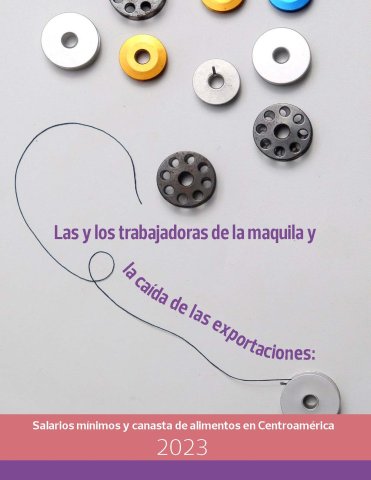
Photo: Eric Anada
The latest in a series of annual wage reports by Sergio Chávez highlights the immense gap between the cost of adequate nutritional food items and monthly minimum wages for workers in Central America’s four garment-producing countries - Guatemala, El Salvador, Honduras and Nicaragua.
The just-released report, Las y los trabajadoras de la maquila y la caída de las exportaciones: salarios mínimos y canasta de alimentos en Centroamérica, also highlights an industry in crisis. The four Central American countries are among the top 15 countries exporting garment and textile products to the US. Since August 2022, each country has experienced a dramatic 18-22% drop in exports to the US, which has impacted workers in the form of reduced hours, factory closures, and mass layoffs.
Adding to the loss of jobs and income, rising inflation and soaring food costs have created an impossible situation for garment workers who are unable to meet their basic needs. General inflation rates have presented challenges, but food costs in these four countries are rising even faster with rates ranging from 11.6% to 15.8% in one year alone, disproportionately harming people living in poverty that spend a large portion of their income on food.
As asserted in the report, any minimum wage increases gained in recent years have been devoured by these soaring costs. Even in Honduras and Nicaragua, the two countries in the region with the highest levels of unionization in the sector, and where unions participate in bipartite and tripartite minimum wage negotiations, workers’ wages do not begin to meet their basic needs.
The lack of a living wage and reductions in real wages pose a major barrier to workers’ ability to provide for themselves and their families and, given the industry’s current crisis and increasing uncertainty throughout the region, dampen hopes of achieving a living wage in the near future.
- Read the 2023 report (in Spanish)
- Reports from previous years (in Spanish): October 2022 | September 2021 | December 2020 | January 2019 | September 2018
Sergio Chávez works with the Maquila Solidarity Network and is based in El Salvador.